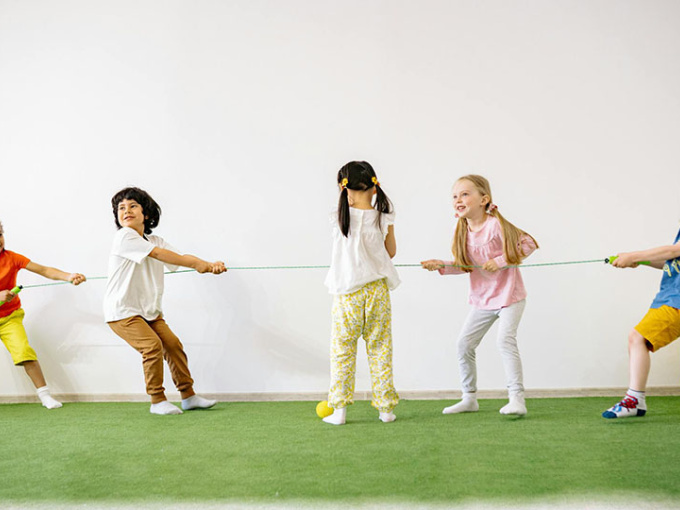Impact of COVID-19 Restrictions on Young Children’s Play, Learning and Development: Preliminary Findings from the PLEY Survey

Children’s lives have changed considerably over the last few months with the closure of schools and creches in mid-March, and the subsequent restrictions that were put in place to limit the spread of COVID-19. The Play and Learning in the Early Years (PLEY) Survey was launched in May and open to parents of children aged 10 and under for two weeks during Phase 1 of the easing of restrictions in Ireland. Over 500 parents of young children answered questions about how the COVID-19 crisis has affected their child’s play, learning and development.
We’re just beginning to look at the data but some preliminary analyses provide fascinating insights into children’s lives in lockdown. For example:
- Social distancing – Parents indicated that nearly all children aged 6 and over, and three quarters of children aged 4-5 years, understand the restrictions and social distancing
- School – Most children miss school and most parents agree it is important to continue school work at home, but it is a source of conflict in over half of the families surveyed
- Childcare – Two thirds of children aged 1-5 years miss childcare
- Social relationships – Most children miss family, friends and playing with other children
- Play – Play has changed for many children with increases in screen time and outdoor play, and a third of children bringing information about the virus or restrictions into their play
Some of the responses provided by parents suggest their children have adapted well to the change in circumstances and are thriving on more outdoor play and greater freedom from schedules. However, other parents have indicated their family is struggling with the changes and their child has been very negatively effected by the restrictions. Some of these children are likely to need additional support in the future from their teachers, early years professionals or from health and social care professionals such as clinical and educational psychologists. Some parents described the changes:
- “She spends more time on You Tube than before. She finds the school work at home difficult” (Child Age - 9 years)
- “Missing friend interaction and missing school friends. Also missing martial arts and hurling training” (Child Age – 6 years)
- “Isolation and anxiety. Misses the routine of school. He misses meeting his friends” (Child Age – 7 years)
- “His routine - my son is autistic and is finding every change so hard and schoolwork is a huge challenge.” (Child Age – 9 years)
- “More time at home, less with people. More clingy due to less time with others. Def more time on tablet as both parents working from home. Better at independent play as had to be left alone to play with his toys” (Child Age – 2 years)
- “The biggest change has been having no school and friends around to play with or come over to our house. My child is constantly asking when he can go back to school. When can he have friends over to play? When will the virus be over? He absolutely loves school and learning and I do worry about when he goes back, if things are crazy different it could put him off.” (Child Age – 5 years)
- “We have 3 children and both parents still working. We do school work every day with our 2 older boys and outside play/walk/cycle art etc as much as possible every day but with one of us out working most days it’s very hard to do as much as they would have at school…it can be very stressful for us all” (Child Age - 5 years)
We hope to share more findings in the future as further analyses are completed on the data. Thank you to all the parents who kindly participated in the survey and gave their time to provide this important information. Additional information and preliminary findings are available on the link below. This preliminary report has been shared with the Department of Children and Youth Affairs, who also kindly shared the survey link when the survey was open, as did many other organisations that support the care, education, health and well-being of children.
PLEY Survey Preliminary Findings Report available here: The Impact of COVID-19 Restrictions on Young Children’s Play, Learning and Development.
Dr Suzanne M. Egan



